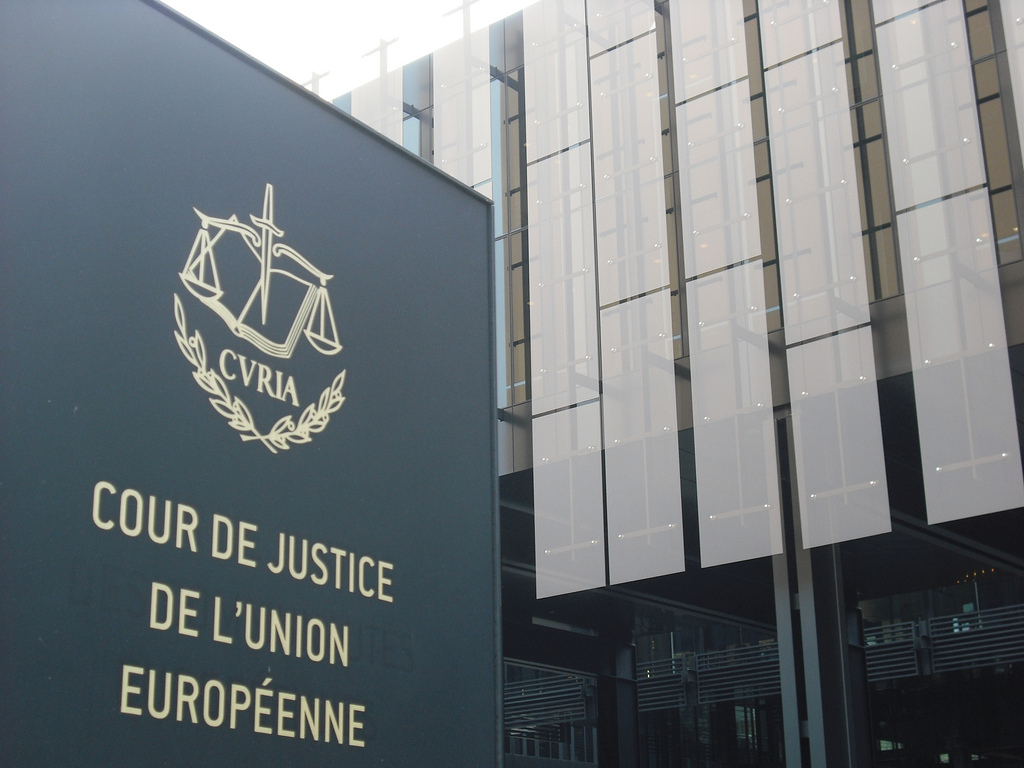Europe is the worst enemy of the US? You cannot be serious. Islamism, Russia, illegal immigrants… whatever, but surely not Europe! Are we not still together in NATO? Do we not conduct huge amounts of trade every day? Do we not share the same cultural roots, the same civilization, the same vision of the future? Did France not give the US her famous Statue of Liberty – “Liberty Enlightening the World?“
Not anymore. In a sense, Europe looks like a continent where American Democrats have been in power for 30 years, not only in the European states, but also at the level of the European Union.
In the US, the political spectrum still spans a vast range of views between Democrats and Republicans, globalists and nationalists, pro-lifers and pro-choicers, pro-government control and pro-individuals’ control, and pro-whatever. Even today with a president and a Supreme Court clearly on the political “Right” these divisions, and the all-important separation of powers, allow for and encourage vigorous debate. By contrast, in Europe, at the “official” level, such a spectrum of views no longer exists.
In Western Europe, politically speaking, in the press and in universities, either you are on the “Left,” or you are a pariah. If you are a pariah, you are most likely to be prosecuted for “Islamophobia”, “racism”, discrimination or some other “trumped up” charge.
There are several reasons for this imbalance. One is the difference in political maturity between Europeans and Americans. Whereas “ordinary” American voters (not just the “elites”) understand that their Supreme Court is key to ensuring that fundamental constitutional freedoms are maintained for all, the Europeans have done the opposite. In the US, the constitutional right to “Life, Liberty and the pursuit of Happiness” is derived from the people — “from the consent of the governed.”
Consequently, when Justice Antonin Scalia of the US Supreme Court died, the US press wrote about him for weeks. “Ordinary citizens” in the US are deeply aware of judicial roles and their effect on judgements and legal precedents.
By contrast, in Europe, we now have two Supreme Courts: the European Court of Human Rights (ECHR) in Strasbourg, and the Court of Justice of the European Union (CJEU) in Luxembourg, in addition to national courts. There is, however, not one citizen in a million who can name a single judge of either the ECHR or the CJEU. The reason is that the nomination of those judges is mostly opaque, purely governmental and, in the instance of the ECHR, with no public debate. With the CJEU, appointments are also essentially governmental, with the sanction of the European Parliament, which is ideologically dominated by the Left.
 In Europe, there are now two Supreme Courts: the European Court of Human Rights (ECHR) in Strasbourg, and the Court of Justice of the European Union (CJEU) in Luxembourg (pictured above), in addition to national courts. (Image source: Transparency International/Flickr) In Europe, there are now two Supreme Courts: the European Court of Human Rights (ECHR) in Strasbourg, and the Court of Justice of the European Union (CJEU) in Luxembourg (pictured above), in addition to national courts. (Image source: Transparency International/Flickr) |
The US has always welcomed immigrants, most of whom came to her shores via Ellis Island and went through a legal process for entry, led by the light of the torch of Lady Liberty. In recent years, especially since the advent of increased terrorism, the subject of illegal immigrants, migrant workers and the vetting of immigrants has become hotly debated.
By contrast, in Europe, the topic of “illegal” migrants is effectively forbidden. The continent has recently been invaded by millions of migrants — many apparently arriving under the false pretense of being refugees, even according to the United Nations.
One of the reasons is the open-door policy of German Chancellor Angela Merkel, who allowed over a million mostly Muslim migrants to enter Germany, not only without extreme vetting, but with no vetting at all.
There is, however, another, more structural cause for the current situation. In 2012, the ECHR enacted the so-called “HIRSI” ruling, named after the court case of Hirsi Jamaa and Others v. Italy, which states that the European states have the legal obligation to rescue migrants wherever they find them in the Mediterranean Sea — even just 200 meters away from the Libyan coast — and ferry them to the European shores, so that these people can claim the status of refugee.
When the Italian Navy intercepted illegal migrants in the Mediterranean Sea and sent them back to their point of origin, Libya, not only did the ECHR condemn Italy for this “obvious” breach of human rights; the Italians had to pay 15,000 euros ($17,000 USD) to each of these illegal migrants in the name of “moral damage”. This kind of money is equivalent to more than 10 years of income in Somalia and Eritrea (the countries of origin of Mr. Hirsi Jamaa and his companions). In 2016, Somalia’s GDP per capita was an estimated $400 USD; Eritrea’s $1,300.
Everyone, of course, heard about the HIRSI ruling. In Africa, especially, many understood that if they could reach the Mediterranean, Europe’s navies would now be obliged to ferry them directly to Europe. Before the HIRSI ruling, when people tried to reach the shores of Europe, hundreds every year tragically died at sea. After HIRSI, the objective is now simply to be intercepted. Consequently, hundreds of thousands attempt this journey — often with the help of non-governmental organizations (NGOs) such as Médecins Sans Frontières, whose activists wait for boats to appear at sea, just off the Libyan coast. We therefore presently have 5,000 unintercepted people dying at sea every year.
While Italy is “drowning” in refugees, Austria has deployed armored vehicles close to its border with Italy, to stop more migrants from coming north.
The vast majority of these European courts — whether the ECHR or the CJEU — in their attempt to be moral and just, have dismissed the sovereign laws of Italy as irrelevant, and trampled the rights of the Italian state and ordinary Italians to approve who enters their country.
Americans would do well to read the HIRSI decision; it is rather short and a perfect summary of current European jurisprudence. They will find that the ECHR does not hesitate to accept NGOs as an authoritative part of the process; the ECHR even quotes their statements as if fact or law. In Europe, Amnesty International and the like are, it appears, a new source of law.
The European people, of course, still share the common values of Western civilization. The “Visegrad Group” of countries in Central Europe, for instance — the Czech Republic, Hungary, Poland and Slovakia — do not accept the German diktat to relocate Muslim refugees. Parts of Western Europe, such as the northern Flemish-speaking part of Belgium, are also pretty tired of the whole European mess, and Merkel will not embody the leadership of Germany forever.
Americans, therefore, would do well to understand that for the time being the “Cultural Left” is so deeply entrenched in Western Europe and the EU, that their worst ideological enemy is not the Middle East or Russia: it is Europe.
Those who gave the Statue of Liberty to America in 1886 “to commemorate the perseverance of freedom and democracy in the United States” are willingly trampling their own people’s liberties today through courts of appointed, unelected, unaccountable ideologues. The danger is, with the help of many, doubtless well-intentioned, international NGOs, the EU will not stop at its shores.
Drieu Godefridi, a classical-liberal Belgian author, is the founder of the l’Institut Hayek in Brussels. He has a PhD in Philosophy from the Sorbonne in Paris and also heads investments in European companie

























